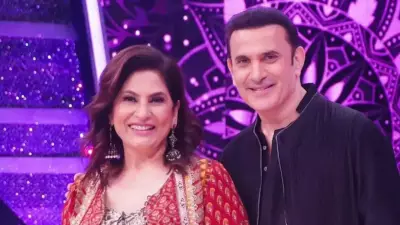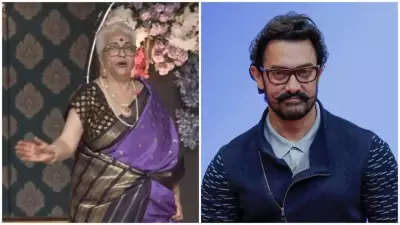
Veteran music composer Abu Malik has sparked fresh debate in the Indian music industry with his candid comments about two legendary playback singers. In a recent explosive interview, Malik didn't hold back his opinions about Kumar Sanu's perceived arrogance and Udit Narayan's controversial onstage behavior.
The Kissing Controversy: Desperation or Innocent Gesture?
Abu Malik addressed the recent controversy surrounding Udit Narayan's viral video from earlier this year, where the singer was seen kissing fans during a live concert performance. The incident occurred while Narayan was singing his popular 1994 track "Tip Tip Barsa Paani" from the action thriller Mohra.
"It's starvation maybe, starvation of human company. God knows what it is," Malik expressed during his conversation with Vickey Lalwani. He described the behavior as "odd" and suggested it stemmed from desperation. "One should not be so desperate. You've got everything. You can make arrangements for everything in the world."
However, Malik was quick to balance his criticism with some praise, acknowledging that otherwise, Udit Narayan remains a "nice guy" who's "humble" but admitted that "his head is in the clouds."
Kumar Sanu: The Arrogant Peacock?
The composer saved his harshest criticism for legendary singer Kumar Sanu, whom he described as "extremely arrogant." Malik didn't mince words when characterizing Sanu's demeanor and attitude.
"The way he talks, the way he walks, the way he struts around, he's an arrogant human being," Malik stated bluntly. He particularly criticized Sanu for venturing into politics and religion, questioning the singer's qualifications in these domains.
Malik used strong imagery to emphasize his point, saying Sanu "struts around like a peacock as if he's conquered the world." He questioned the basis for such arrogance, noting "What have you achieved? You just sing songs."
The Real Industry Bias: Singers vs Composers
Beyond the personal critiques, Malik highlighted what he sees as a fundamental imbalance in the Hindi film industry's credit system. He argued that music composers consistently receive less recognition and financial reward compared to singers.
"A music director works very hard to compose the song and fight with the producer for everything. And a singer comes in and takes away the proprietorship," Malik explained. He described this pattern as historical, spanning generations from Lata Mangeshkar to Armaan Malik.
The composer emphasized that creating a hit song requires collective effort. "Singing a song is just singing a song. It depends on the actor who's in it, the music composer, the lyricist, the recordists. It takes a village to make one song, and the credit is given to the singer?"
Malik pointed to his father, Sardar Malik, as an example of how this credit imbalance has affected composers' careers. "Barring the top five composers of that time, all the others, including my father rolled back because the credit for the song goes to the singer."
While acknowledging the Indian Performing Rights Society's (IPRS) efforts to secure better rights for composers, Malik believes the fundamental industry dynamic remains unchanged. "Only when one has does great deeds that a singer or an actor is born in one's home," he quoted, summarizing the industry's prevailing attitude.
The interview, conducted in Mumbai and published on November 12, 2025, reveals ongoing tensions within India's entertainment industry about credit distribution and recognition among different creative roles.






